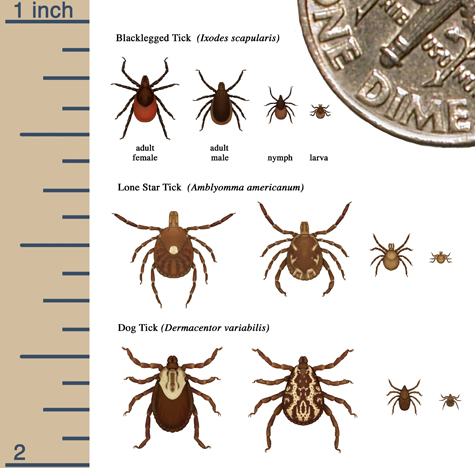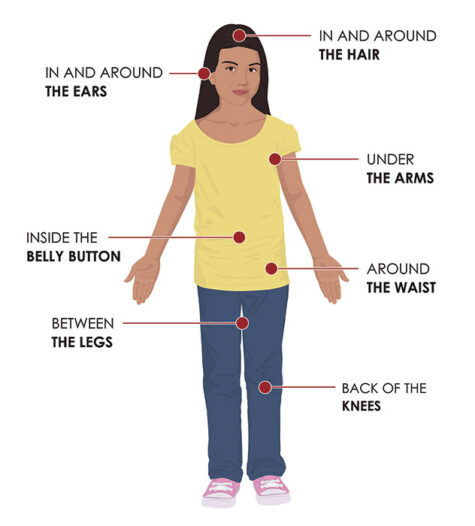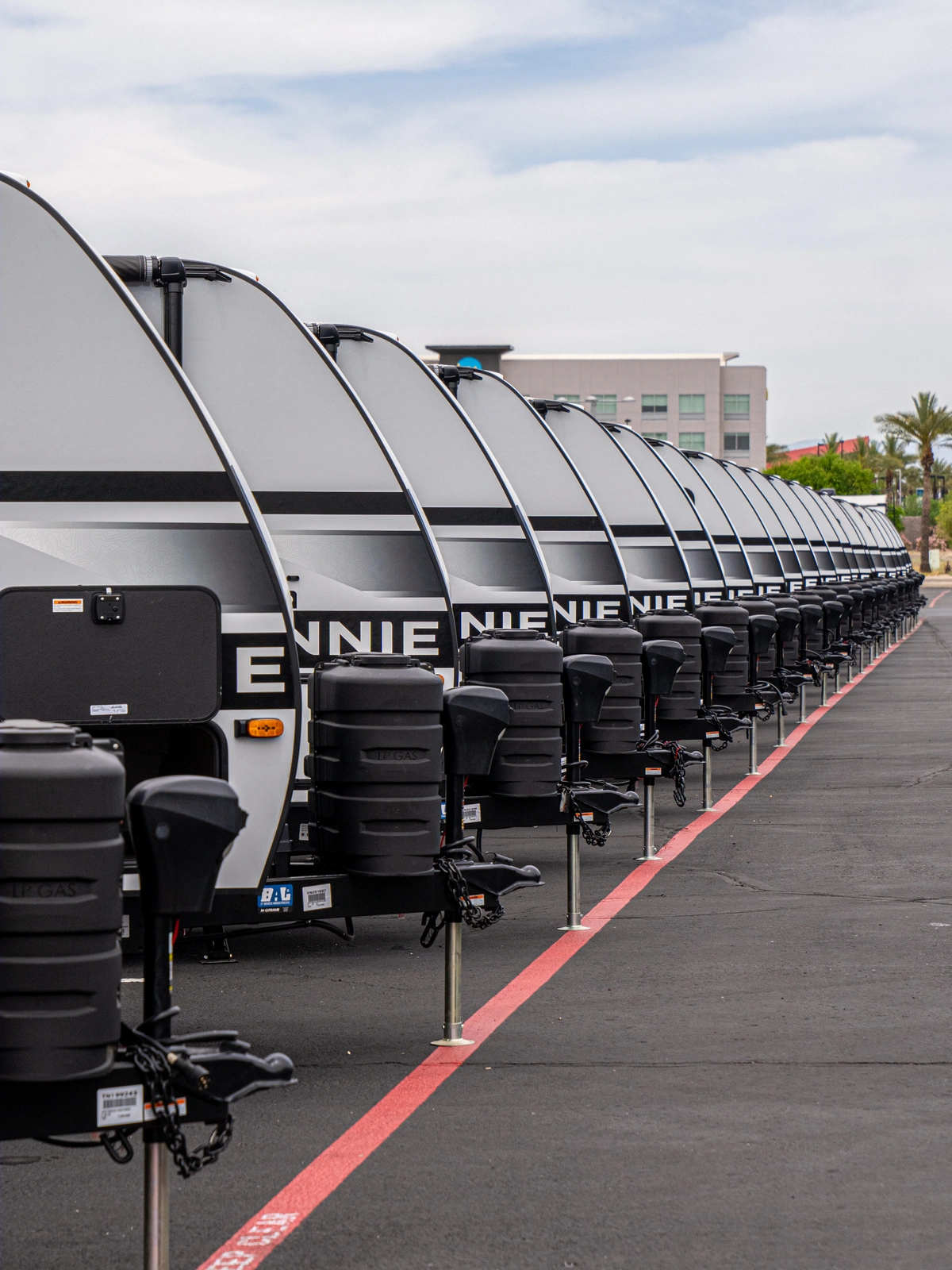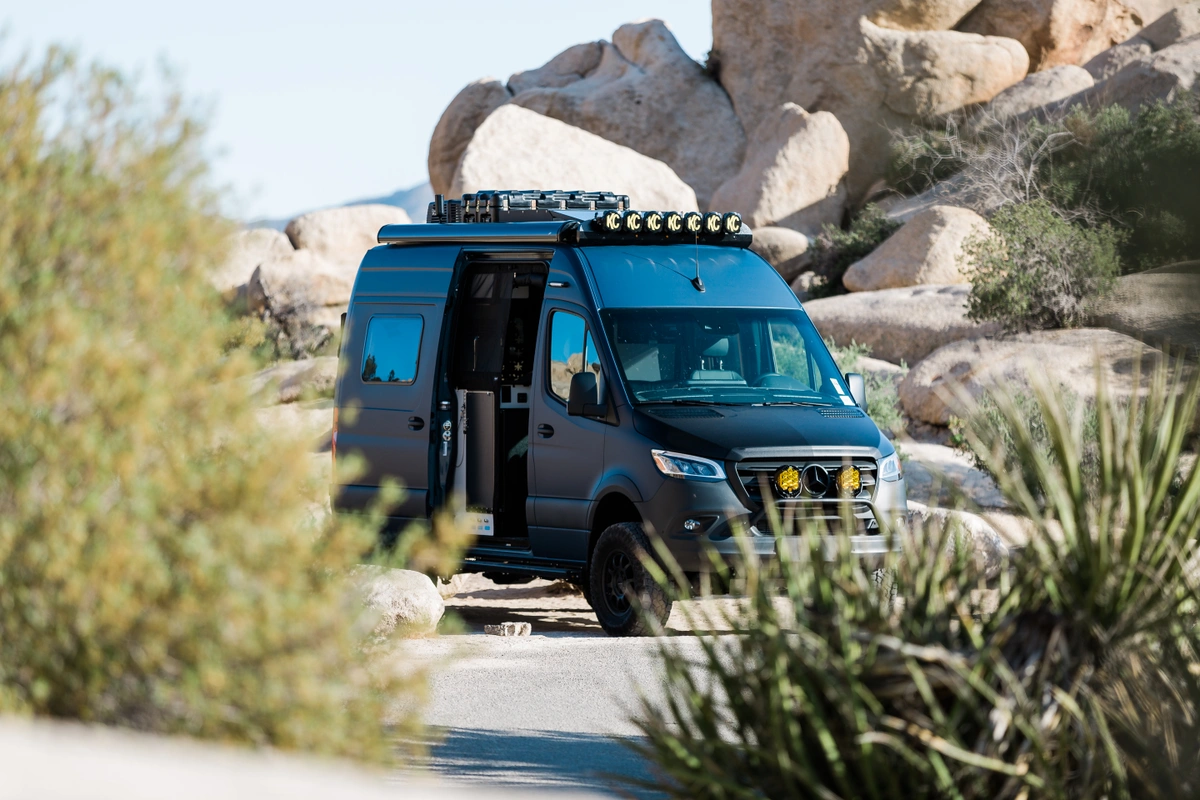With summer in full swing, there's been no shortage of blistering hot days, long nights spent under the stars and the open road ahead. As you RV your way through July and into August, you've probably seen your fair share of little critters, bugs, and rodents along the way. While some are harmless (others, not so much) they are indeed pesky little things that RVers like to keep at bay. We've outlined the summer critters to lookout for on your remaining road trips this season and how to handle them safely. After all, your RV is your home, and no one likes coming home after a long day of exploring to find bugs, rodents, and insects (oh my!) in their RV.

Types of Critters To Watch Out For While RVing
Flying Insects
Grasshoppers, bees, wasps, dragonflies, and moths are not your RVs' friend. A great option to keep insects out of your vents is to purchase a Flying Insect Screen by Camoc. From the water heater to refrigerator, and furnace vents, you'll have multiple options to choose from to secure your RV. Made of heavy-duty stainless steel mesh, they are inexpensive and incredibly easy to install. Our La Mesa RV Stores across the country sell many options for protective bug screens. If you're in the area, stop by our service department and check out our camp shop to purchase one... or three.
Mosquitoes
To keep these guys out in the wild and out of your RV, you're going to need to be mindful of a few things:
Rodents
Squirrels, rabbits, and mice can be cute, but they're not ideal companions at your campground. They come for your food and your food only. When eating outside, be sure to discard your meals to the best of your ability, leaving no scraps behind. Don't leave food out, ever. Opt for animal-safe containers and properly discard your trash. Though raccoons aren't rodents, they do fit into the category of "food thief". These crafty animals are incredibly intelligent and can make their way into some pretty tight spots. Feeding wildlife, unintentional or not, is not healthy for the animals or their survival, so be sure to leave no trace when RVing. Also be sure to keep your basement doors securely closed out night. Rodents may be trying to find a way into your home, why keep the welcome mat out?

Ticks and Chiggers
Oh, the dreaded ticks and chiggers. You probably spent a childhood summer or two playing in the woods all day just to come home and be checked for ticks by your mother. These guys like the heat and can cause some pretty big issues. Before we dive into ticks, we'll start with the less invasive, chiggers.
Chigger Details
Also known as "red bugs" chiggers are actually classified as a mite and they are tiny. We're talking tiny, tiny. While they do not reportedly carry disease, they will make you itch like crazy and can leave a nasty rash. They love hot and humid areas, and tend to settle around the waist or lower legs on the body. The itching can last for several days and it can be severe. If you've been bitten, take a shower and scrub with soap and water. Immediately wash your clothes in hot water. There are multiple over-the-counter anti-itch creams that you can use or ask the pharmacist for a recommendation. If the itching continues for a prolong period, it's best to see a doctor to make sure you do not have an infection.
How to Prevent Bites
Bug spray! Be sure to wear bug spray this summer when you're out in grassy areas. If you can handle the heat, long sleeves and pants are a great preventative measure to keeping yourself itch-free.
Tick Details
Ticks are another story completely. Known to transmit diseases and in some terrible cases cause death, you want to be privy on the potential harm they can inflict while camping. The CDC states, "tick exposure can occur year-round, but ticks are most active during warmer months (April - September)." To better understand the areas throughout the U.S. that ticks live and which are in your particular region, click here.
Ticks reside in grassy, wooded areas as well as on some animals but these aren't the only places you can make contact. In fact, many people have gotten ticks from their own yard. For tick removal information, check out the CDC's guideline by clicking here.
How to Prevent Bites
These recommendations are per the CDC.

How to Examine the Body for Ticks
Before you come inside after a day in the woods be sure to conduct a full body check on yourself, children, pets, and loved ones.
Spiders and Ants
Though harmless, they can be a bit of a nuisance. If you're looking for a natural way to keep ants and spiders out of your RV this summer, try Safer Brand Diatomaceous Earth (D.E). This all-natural option (composed of crushed fossilized fresh-water algae) is safe for humans and pets, is inexpensive and is a highly effective ant and spider killer. The stain-free product is versatile and works both indoors and outdoors. Simply sprinkle the powder across the infested areas and you'll be ant/spider free within 48 hours. While Diatomaceous earth powder is non-toxic, you should still make sure your pet does not ingest. Keep your furry friend in a separate room or another RV completely while using D.E., just to be sure.
Fleas
Let's not forget about our furry friends! While fleas are a year-round problem, they thrive in the warmth and humidity the summer season provides. The best way to take care of fleas is prevention. Make sure your pets are up to date on flea medications, keep their hair trimmed, regularly check them for fleas and give them soothing baths. We promise, you do not want a flea infestation in your RV. A great way to keep fleas from hiding in your home is to vacuum regularly and make sure you get all the nooks and crannies of your motorhome.
New to RVing? Check out our Advice for Newbie RVers in their 50s, 60s and Beyond! If you're a road warrior and would like to share your story, leave us a comment in the section below for a chance to be featured on our La Mesa RV Experience Life blog.



